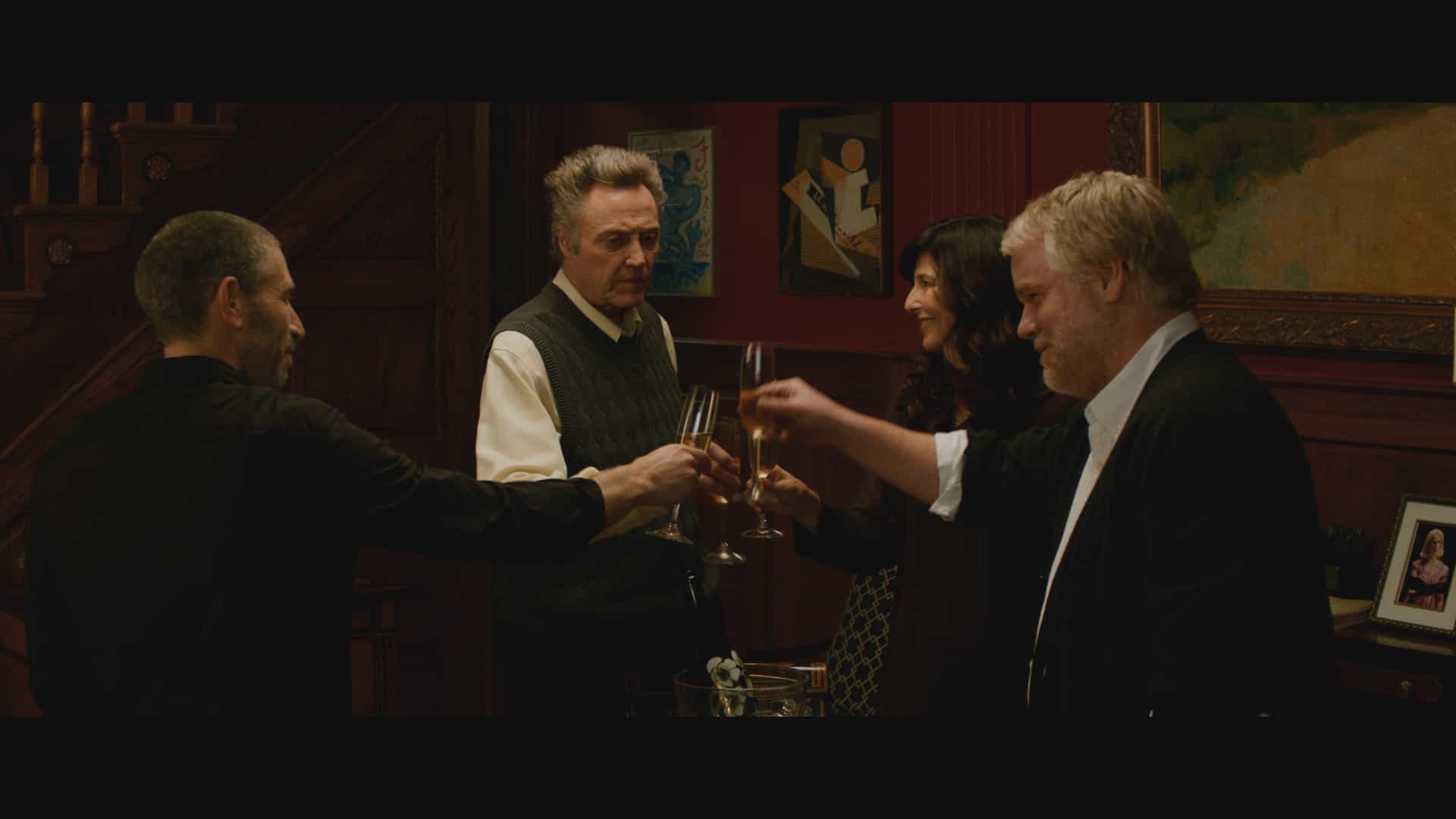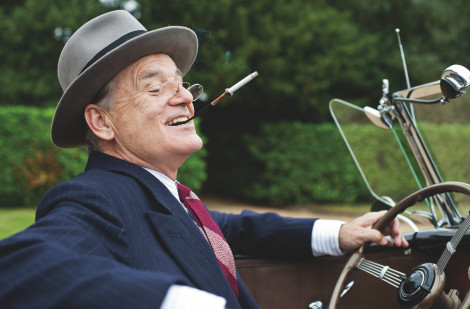Toronto’s annual film extravaganza has returned with its diverse lineup of docs, dramas, comedies and everything in between. Here is The Varsity’s take on some of what TIFF has to offer this year.
Hyde Park on Hudson (Roger Michell)
Promising in theory but lacking in execution, Roger Michell’s Hyde Park on Hudson is ultimately an exercise in misused potential. Though the film features an auspicious cast, led by Bill Murray and supported by the likes of Laura Linney and Samuel West, its most insightful moments are marred by the gaping holes in its direction. Murray’s performance as Franklin D. Roosevelt is career-defining and West’s believable portrayal of King George VI will surely draw comparisons to Colin Firth in The King’s Speech, but Michell and screenwriter Richard Nelson focus too much of their attention on plot when they should be developing the film’s characters. They cannot decide whether Hyde Park is a tell-all romance about the president and his cousin or a humanizing look at two perplexing and influential historical figures.
Laurence Anyways (Xavier Dolan)
“Can something be great enough to spare the person from difference and ostracism?” This question, posed by Laurence Alia (Melvil Poupaud), shapes both the style and emotional crux of Xavier Dolan’s Laurence Anyways. The film, a startlingly surreal but genuinely sincere treatment of transgendered individuals, points to its own cinematic greatness with its epic length and fluidity of styles, as though drawing attention to the film’s grand scale will somehow legitimize Laurence’s lifestyle. An early scene sees Laurence, who works as a teacher, entering his classroom dressed as a woman for the first time. The cinematography evokes the wide-angle landscapes captured by the likes of Bernardo Bertolucci, and the silence is deafening. But in contrast to the scene’s grand style, Laurence’s students prove to be completely nonplussed at the sight of their teacher, prompting the audience to ask themselves if this film is ‘great’ enough to spare its protagonist from scorn. Ultimately, though, the film is a lofty undertaking that is hindered by its own ambitions and excessively long run time. Laurence fizzles out and overstays his welcome long after we have accepted him for who he is.
A Late Quartet (Yaron Zilberman)
With the skill of a seasoned conductor, director Yaron Zilberman commands a nuanced cast, including Philip Seymour Hoffman, Mark Ivanir, Catherine Keener, and Christopher Walken, who harmonize on-screen as four brilliant musicians. The lead actors craft four beautifully defined personalities whose interactions reveal unique voices, palpable histories, and psychologically engaging characters. These characters are members of a string quartet, which is thrown into disarray when Walken’s Peter Mitchell, the cellist and moral centre of their company, begins to suffer from the onset of Parkinson’s disease. Throughout the film, the main actors share a volatile and riveting on-screen chemistry, as their characters struggle to keep emotion and obsession in check. While watching A Late Quartet, it becomes clear that the cast members are as dedicated to their craft as their musicians are to their instruments, and that excellence can be defined not only by an entire career, but also by a single great performance, whether musical or cinematic.
The End of Time (Peter Mettler)
The “end of time” for this film comes not a moment too soon for the audience members who are eagerly anticipating the credits. Director Peter Mettler’s pristine and picturesque cinematography of a desolate Detroit, the cavernous CERN laboratory, and the lava-wrecked slopes of Hawaii would ultimately function better as a screensaver. Contemplating the ambiguity of time with an equally ambiguous film, Mettler leans closer to avant-garde than documentary. Granted, The End of Time does occasionally stir up deep pathos with some of its images, such as a burning funeral pyre and the desolation of a once-glorious movie palace, disemboweled and usurped by a parking lot. But the film fails to impart knowledge or enlighten its viewers, and Mettler’s mother provides the only shred of humanity and life-affirming knowledge in an otherwise soulless and intellectually vapid cinematic experience.
Dredd (Pete Travis)
Unapologetically gory, littered with kitschy one-liners, and complete with Karl Urban’s answer to Christian Bale’s Bat-growl, Dredd is the most unabashed fun I’ve had at the theatre in a long time. In a futuristic megacity called (you guessed it) Mega City One, where the role of judge, jury, and executioner are vested in no-nonsense cops, Judge Dredd (Urban) and trainee judge Cassandra Anderson (Olivia Thirlby) ascend a 200-storey shantytown to halt production of the drug Slo-Mo. This drug allows its users to experience reality in (you guessed it) slow motion, creating an opportunity for the audience to be treated to cinematographic reprieves of colour and hypnotic beauty, juxtaposed with scenes of innovative and gruesome methods of torture. Lena Headey plays Ma-Ma, Slo-Mo manufacturer and gang leader hell bent on killing the judges she has trapped. Like Headey’s Cersei on Game of Thrones, Ma-Ma is a testament to villains whose allure is rooted in languid gestures and a calm, distracted demeanour.
Stories We Tell (Sarah Polley)
When director Sarah Polley’s charismatic mother leaves a secret in the wake of her death, sons, daughters, fathers, and friends use stories to explain and to probe, to build myths and to expose the hidden deceits of the living. Personal, but never narcissistic or self-indulgent, Stories We Tell is a documentary that ironically examines how slippery the truth can be in a genre that aims to present facts and target reality. To some, this documentary might be the basis for celebrity scandal. To me, it is a glorious film, rich, tender and pure in its moments of joy and sadness. Sarah Polley’s debut doc has been mined and exploited, but rarely respected for the talent and method behind it. As I watched Stories We Tell, I was first enchanted by the film’s subjects, who benefit the picture with their humour, intelligence, and endearing personalities. Then, I was engrossed, and later fooled by the director’s dramatic recreation of home video footage. And when the film was over, I wanted it again.
Midnight’s Children (Deepa Mehta)
TIFF favourite Deepa Mehta returns to this year’s festival with her remake of Salman Rushdie’s novel, Midnight’s Children. The film is an ambitious feature, encompassing India’s history from as early as 1917, when the country was still bound to the British Empire, to 1977 and the end of The Emergency, a period during which fundamental civil liberties were suspended by Indira Gandhi. The film follows the lives of children born in the first hour after India gained its independence, children who soon come to realize they have supernatural powers. The concept is intriguing, but the film is much too ambitious in scope. Midnight’s Children jumps abruptly between different time periods, leaving the film’s plotlines frustratingly unsettled. Also, Mehta’s decision to exclude a political trajectory from the film as it interweaves stories that are set during the country’s bloody history seems misguided. Unfortunately, like the more mainstream Slumdog Millionare and Best Exotic Marigold Hotel, the majority of Midnight’s Children ends up relying on “poverty porn” b-rolls for its dramatic punches.



